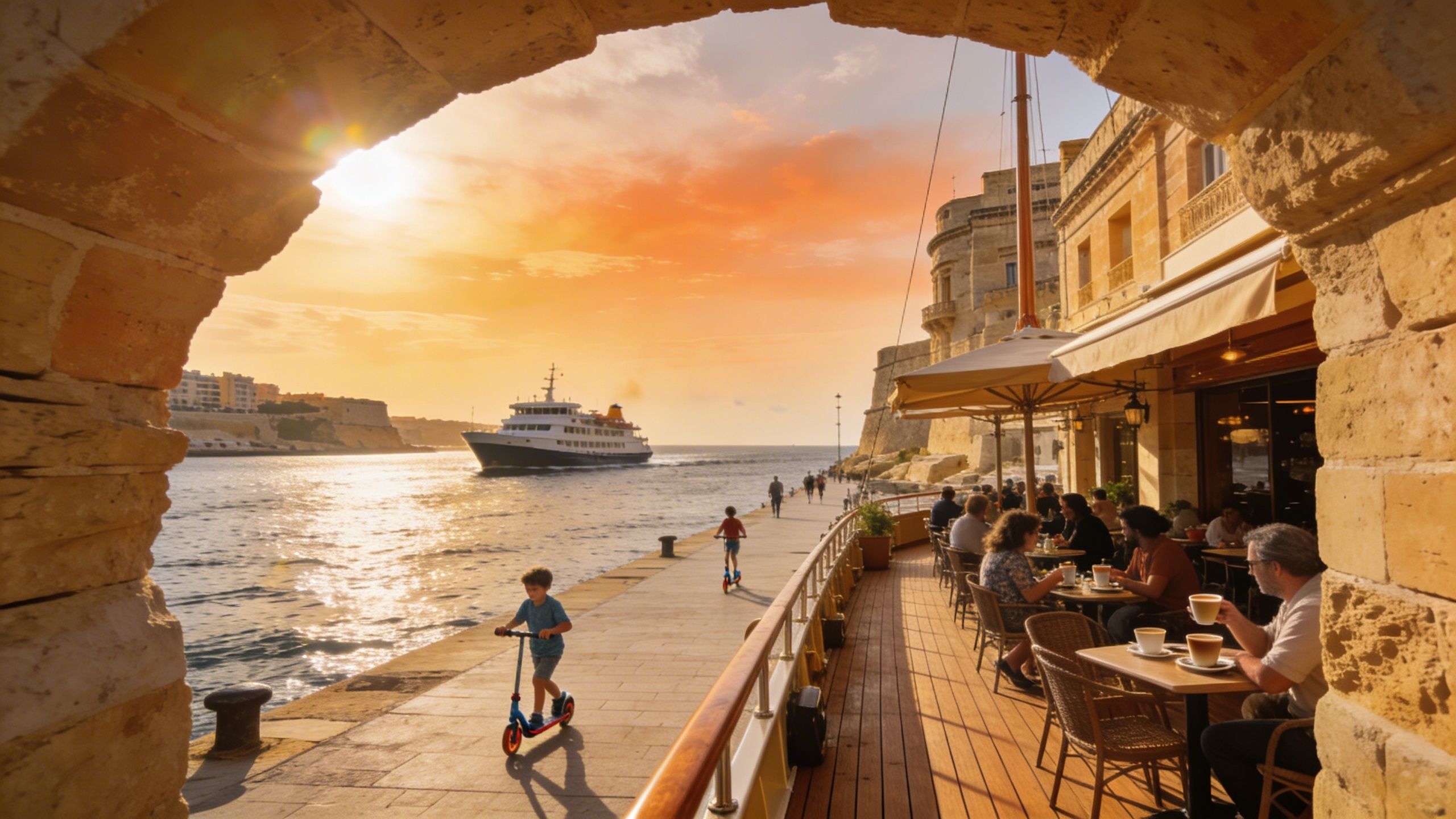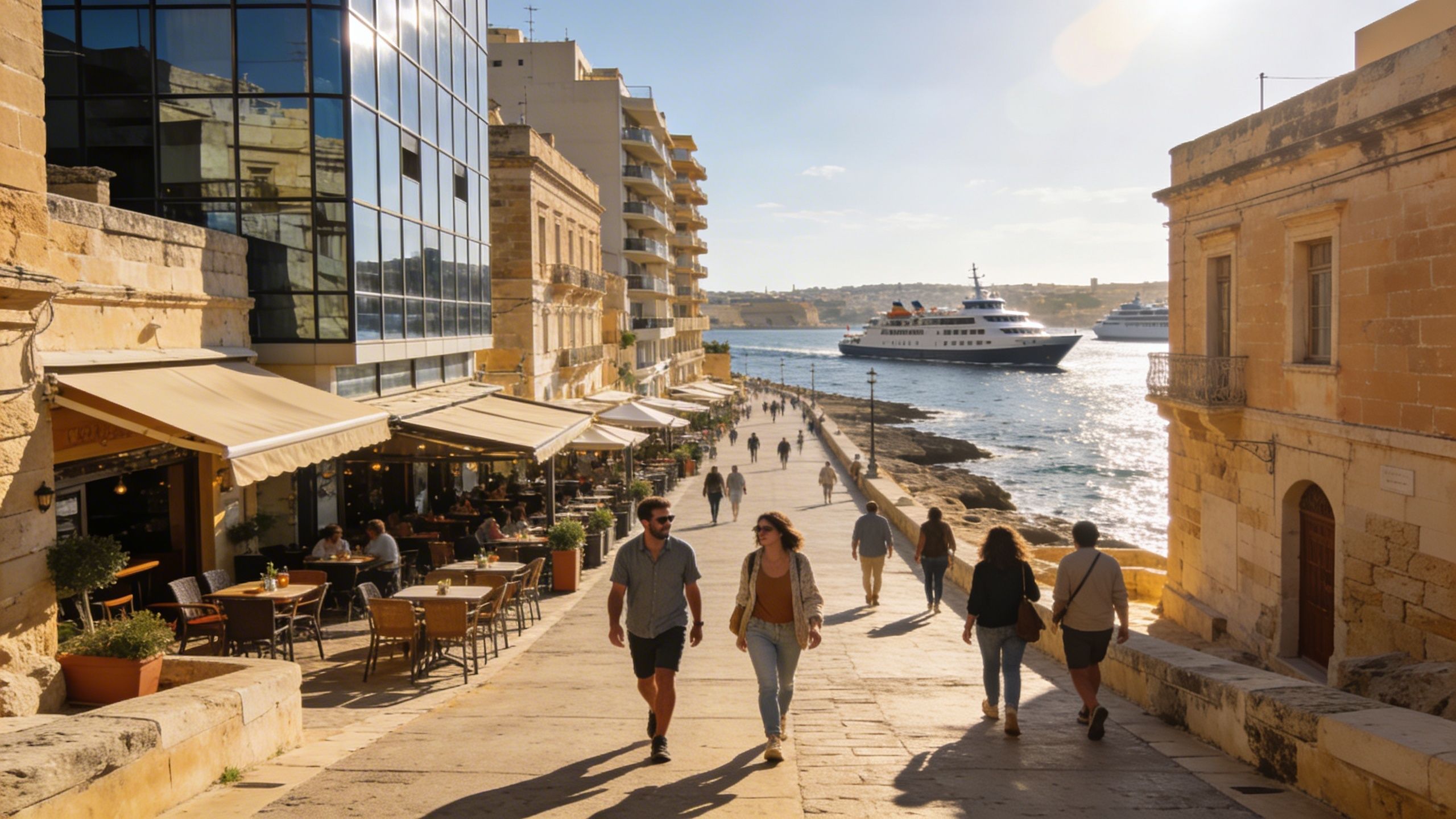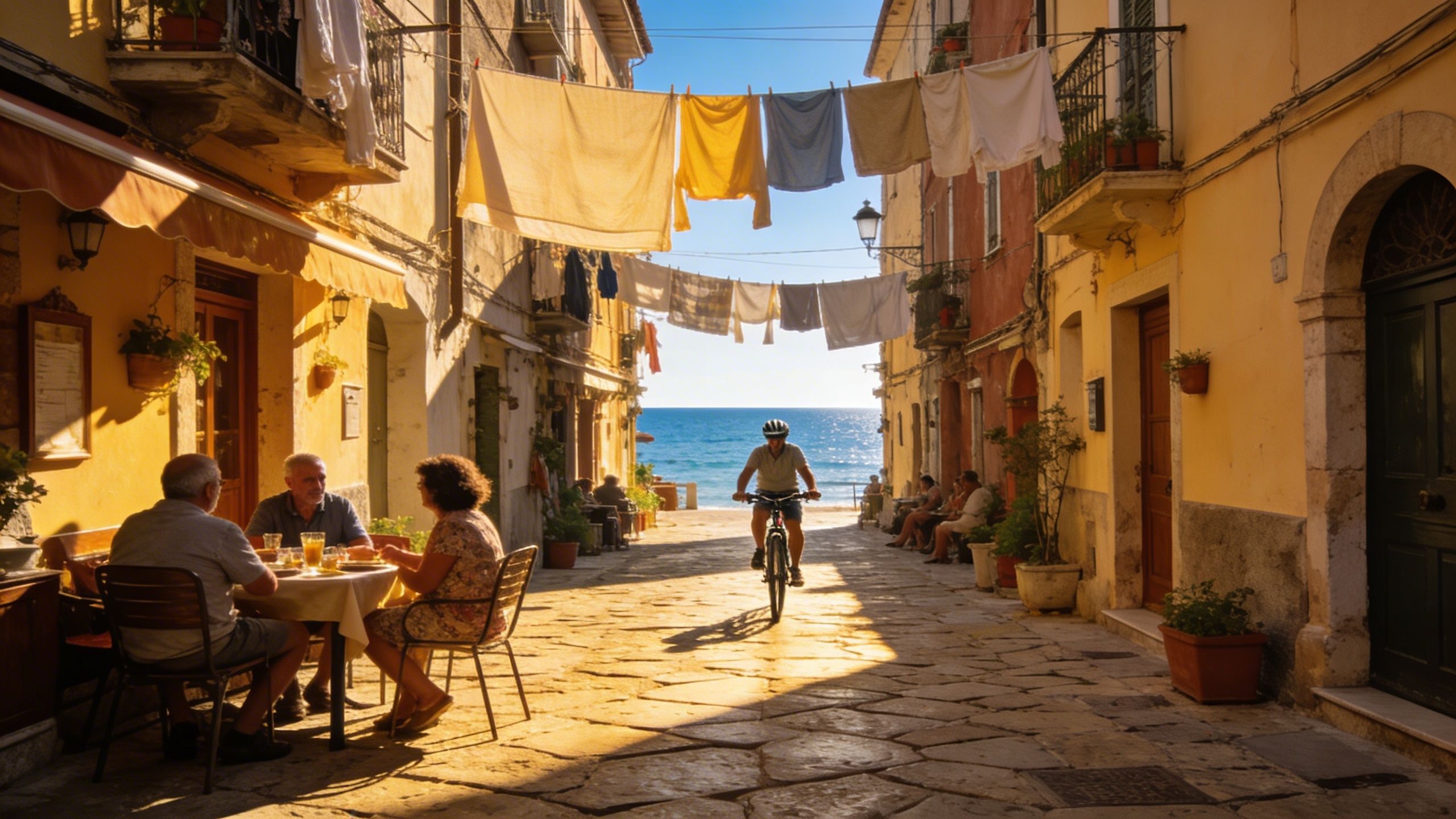Coastal France: Buy for Daily Life, Not the Headline Glamour
Coastal France pairs everyday markets and seaside rituals with stabilising 2025 prices—buy where lifestyle fits, not where the headline glamour points.
Imagine stepping out at dawn onto the Promenade des Anglais with a café crème in hand, or buying oysters at Cap-Ferret while fishermen sort the catch. France feels lived-in: markets every morning, lunch that stretches into siestas in summer, and neighbourhoods where shopkeepers know your name. But beneath the romance there are clear market rhythms. Recent INSEE data shows the national market shifted from decline to renewed growth in early 2025 — a reminder that lifestyle and timing matter equally when buying here.
Living the French coastal life

From the Atlantic’s surf towns to the pebble beaches of the Riviera, coastal France offers distinct daily rhythms. Mornings begin at marché stalls — produce, charcuterie, and sea-salty air. Afternoons are for passeggiata or a languid terrace; evenings for aperitif and close conversation. The scale of the place you choose — village, mid-size town, or city — determines how you live, not just what you pay.
Nice, Cannes, Antibes: urban Riviera with town cadence
Nice mixes promenade life with year-round services; Cannes is seasonal but surprisingly practical off‑peak; Antibes balances yacht culture with village streets. High demand pushes prices in hotspots, yet towns like Antibes and Cannes still host a range of properties from historic apartments to modern seafront flats — and prices vary by street and view rather than town alone.
Cap-Ferret, Biarritz, Île de Ré: Atlantic rhythms and space
The Atlantic coast feels quieter and more seasonal in a different way: surfing mornings, seafood markets, bicycle culture. Prices are often lower per square metre than the Côte d’Azur, and recent national indices show provincial prices rising again in 2025 — meaning coastal Atlantic towns can be more accessible if you prioritise lifestyle over prestige.
- Lifestyle highlights: Proven coastal routines and micro-places to know
- Morning market at Cours Saleya (Nice); coffee at Café de la Plage (Biarritz); oysters at Cap-Ferret harbour; evening aperitif on Rue d’Antibes (Cannes); weekend surf at La Côte des Basques (Biarritz); bike rides along Île de Ré causeway.
Making the move: lifestyle-led practicalities

The best purchases start with a lived vision. Which café will you haunt? Where will you park friends for dinner? Once you answer those, property choices become clearer. Practicalities — legal checks, local taxes, and agency expertise — are necessary, but they must be chosen to protect the lifestyle you want, not to block it.
Common property types and how they shape daily life
Seaside apartments: easy access, smaller terraces, maintenance handled by syndic. Villas: privacy and outdoor life, but higher upkeep and seasonal vacancy risk. Converted fishermen’s houses or townhouses: characterful, often in pedestrian streets — lovely for daily living but ask about parking and insulation. Match the type to weekday routines, not just weekend fantasies.
- Six practical steps that preserve lifestyle when buying
- 1) Visit in the season you'll live there; 2) Test local services for a week (market, medical, transport); 3) Ask an agent for recent street-level comparables, not town averages; 4) Prioritise orientation and outdoor space for lifestyle value; 5) Check syndic minutes and renovation plans for apartments; 6) Build a local contacts list (plumber, notary, gestor) before offer.
Insider knowledge: what expats wish they'd known
Expat buyers often romanticise coastal life and under-value practical friction: seasonal service closures, travel logistics, and community dynamics. Many discover that the locals' preference for quiet summers or winter festivals changes how a place feels across the year. Parisians, for example, drive regional markets — so expect pockets of activity tied to domestic demand.
Language, community, and everyday integration
Basic French smooths transactions and daily life. Local cafés and markets are where relationships form; being present and polite goes further than paperwork. Small gestures — learning neighbourhood rhythms, supporting local shops — often determine whether you’re seen as a long-term neighbour or a seasonal visitor.
Long-term lifestyle considerations
Think beyond year one: maintenance cycles, community fees, and how a place performs off-season. Coastal properties that rely on summer tourism need contingency for lower winter rental yields and higher heating costs. If your aim is a sustainable life change, prioritise year-round services over short-term glamor.
- Red flags local agents watch for
- Recent, unexplained price jumps on a single street; missing syndic accounts for an apartment block; coastal plots with unclear setback or erosion risk; properties sold ‘as is’ with deferred maintenance; inconsistent utility records.
Conclusion: choose a life first, then the deed. France’s coasts offer varied rhythms — from the Riviera’s confident glamour to the Atlantic’s relaxed surf culture. Data from INSEE and national notaries shows the market stabilising and returning to growth in 2025, but the best buys are those that match daily life, not market myths. If you’re serious, schedule a seasonal visit, compile street-level comparables, and work with a local adviser who understands both lifestyle and legal detail.
Norwegian market analyst who serves Nordic buyers with transparent pricing and risk assessment. Specializes in residency rules and tax implications.


